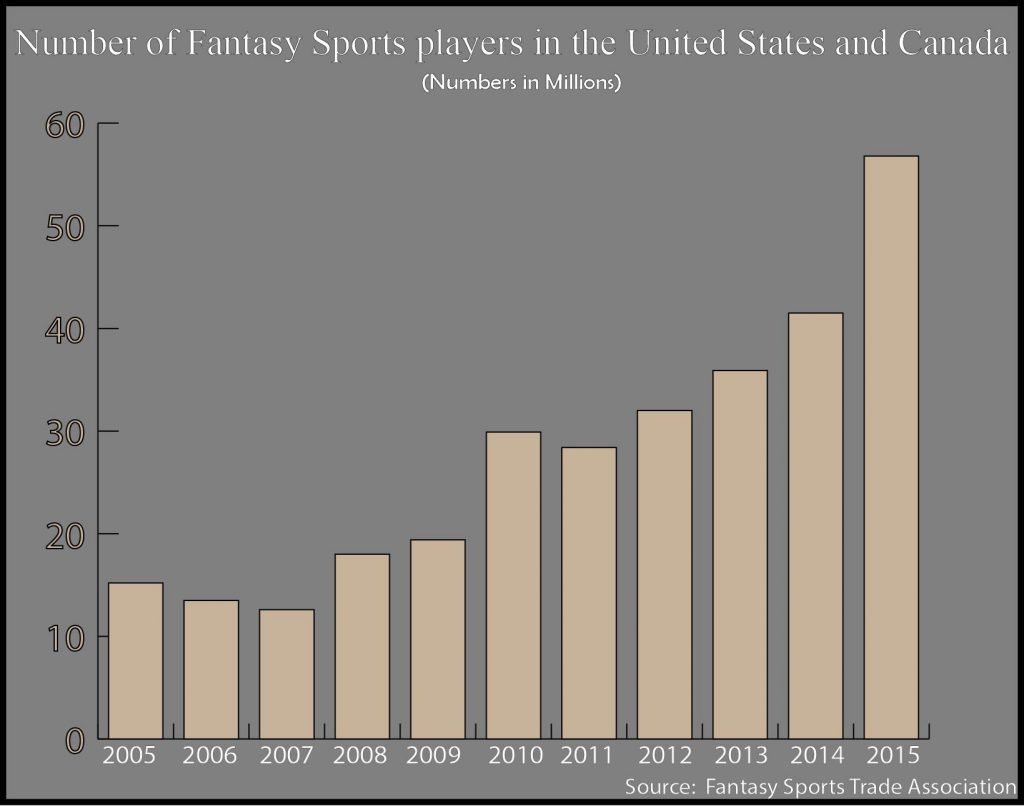By Samuel Mattison
Alabama Political Reporter
Fantasy sports, a multi-billion-dollar industry, would come to Alabama depending on the passage of one bill in the Legislature.
Participants compete in fantasy sports by picking members from professional sports teams to compete on imaginary teams, and winners are determined based upon the real-life performance of players.
For online play, wagering money is also common.

The bill, sponsored by state Sen. Paul Sanford, R-Madison, would legalize the popular pastime for the first time since 2016.
In April of that year, then Alabama Attorney General Luther Strange released a legal opinion banning the practice and sent cease and desist letters to DraftKings and FanDuel—the two most popular fantasy sports companies—to stop their operation in Alabama.
Since that time, Sanford has sponsored legislation during 3 sessions to exempt Fantasy Sports from the state’s prohibition on gambling, but the bill has never made it out of the Legislature.
A House version of the bill, however, made it all the way to the Senate floor last year and was just short of ending up on Gov. Kay Ivey’s desk.
It hit a snag when senators called the bill off the floor to negotiate aspects of the bill. Being the final Legislative day, the bill was never brought back.
The only official action taken on the Senate bill last year was a public hearing, which saw an attorney from FanDuel and DraftKings and ALCAP Executive Director Joe Godfrey present two different interpretations of the bill.
The main argument between opponents and proponents revolved around if the game was chance or skill based in nature.
Some, including Sanford, said the knowledge of players and teams required to effectively play the game was an indicator of skill while others, like Godfrey, have said it would essentially bring gambling into the homes of Alabamians.
During one public hearing last year, Godfrey said the bill would turn every gaming console, another way to play fantasy sports, into a “Las Vegas gambling machine.”
Godfrey, in ALCAP’s newsletter, also expressed a concern that the bill would propel the Porch Creek Indian’s casinos to new heights.
As part of the Indian Gaming Regulatory Act, which established the legal framework for Native American gaming, casinos located on Indian Reservations can only practice certain kinds of gambling. The act divides different aspects of gaming into three classes with Class II being electronic bingo and slot machines.
Currently, tribal governments would need to get approval from the governor to conduct gaming above Class II gaming. Daily Fantasy Sports, however, present a legal question that could tie up the legislation.
While never officially getting a designation, the practice could fall under the Class III category, which is every practice that doesn’t constitute Class I or II.
If Daily Fantasy Sports does meet the classification of Class III, it would mean that Alabama would meet one of the qualifications to allow Native American Tribes to practice new gambling practices, such as blackjack and poker.
Legislators were concerned about this and added amendments to specifically prohibit the classification of Daily Fantasy Sports as Class III gambling and also prevent Alabama’s governor from creating an agreement with Native American tribes to allow Class III gambling.
But the classification of Class III gambling lies with the Indian Gaming Commission and not with states.
Despite the amendment, ALCAP still has reservations about the bill.
Similar Legislation is passing through Florida’s Legislature with their main gripe being a gaming compact with the Seminole Tribe.












































